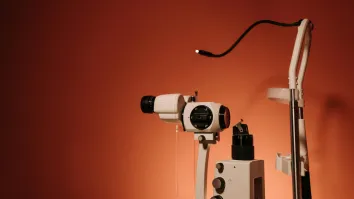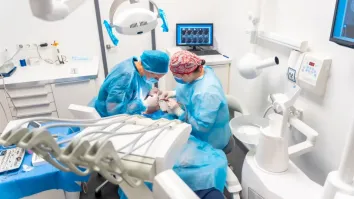Can intelligent automation reduce errors in the healthcare sector?
By automating processes and streamlining clinical pathways, intelligent automation can empower the healthcare industry to provide better patient care.
Due to the COVID-19 pandemic, healthcare systems globally have been tested like never before. The healthcare sector has been under enormous strain, and medical errors represent a greater risk than they did in the past. Such mistakes are not only extremely dangerous, but when patients are involved, they carry an emotional burden, along with the potential for an investigation into, and action taken against, the healthcare provider.
A recent case of a technical error made the headlines last October 2020 when news broke that nearly 16,000 COVID-19 cases went unreported in England due to a technical glitch. Patients who had tested positive were informed about their results but their close contacts weren’t traced. This technical error was a result of some Microsoft Excel files exceeding the maximum size after being sent from the testing provider. An investigation into this incident is currently underway, but it reminds us that mistakes can, and do, happen and the consequences for patients, healthcare providers and the general public, can be serious.
No healthcare provider wants to expose patients to this kind of risk, especially during a critical global health crisis when services are stretched to capacity. So can such errors be reduced, or even eliminated?
Our experience before, and certainly during the pandemic is that implementing intelligent automation can create real impact for the healthcare sector by helping to reduce errors. Intelligent automation combines AI, machine learning and RPA (robotic process automation) to create more agile, accurate and streamlined business processes, reducing the time spent by staff on manual data entry tasks. For the healthcare industry, its application has a number of positive impacts—particularly in the areas of patient safety and experience—that allow highly trained staff to focus on their patients and improve the quality of care.
Intelligent automation can be used by healthcare providers in a number of different ways:
- Case Management. Manual transfer of data throughout systems used to manage the patient journey can be onerous and time-consuming. As a patient moves through primary care, ambulance services, secondary care and into community care, manually collecting and transferring data creates significant risks of both errors and delay. Intelligent automation can create cases and add data and notes to existing cases across multiple systems, reducing manual effort and minimising the risk of human error.
- Patient information presentation. Intelligent automation, through cloud-based intelligent digital workers, aggregates patients’ medical records across multiple systems to present attending medical staff with a full overview of the facts and the patient’s history. This ensures that the treatment pathway accounts for all of the relevant information.
- Patient engagement. Following a patient’s discharge, digital workers can be used to create a patient portal, sending out links and reminders to patients. In turn, the treatment plans for patients requiring repeat visits are automatically updated to streamline the approach taken by their healthcare specialist.
- Patient self-service. Intelligent automation can be used at the frontline of treatment to allow patients to register themselves at kiosks. This not only reduces check-in times but helps to minimise person-to-person contact during Covid-19, freeing up resources. In addition, healthcare providers can integrate facial recognition technology to enable digital workers to automatically check in repeat patients and retrieve their records on arrival, reducing waiting times and improving patient experience.
- Patient diagnostics. Using intelligent automation, healthcare providers can shorten the time between tests, results and treatment by connecting disparate systems and streamlining clinical pathways. This not only improves patient care, but gives critical time back to clinicians.
As boundless data is continuously uploaded into administrative systems and medical databases, especially during the COVID-19 pandemic, these examples showcase how intelligent automation can support the healthcare infrastructure. Whilst automation is not able to solve every pain point, it is a valuable tool in helping to reshape data processes, improve efficiencies and enhance patient outcomes.
Technology innovation in medical care has taken great strides in the current age of digitalisation, but deeper digital transformation is required to optimise healthcare systems. It’s imperative that healthcare providers consider intelligent automation not only as a technology play, but as an essential resource that can release clinical and non-clinical services to focus on patient care by reducing the time spent on repetitive and time-consuming administrative tasks. At the same time, intelligent automation can connect disparate systems between departments to facilitate the exchange and sharing of information, while digital workers process data at machine speed and eliminate administrative errors. By integrating intelligent automation into healthcare processes, healthcare providers can serve patients better and keep pace with the country’s healthcare needs.



















 Advertise
Advertise






